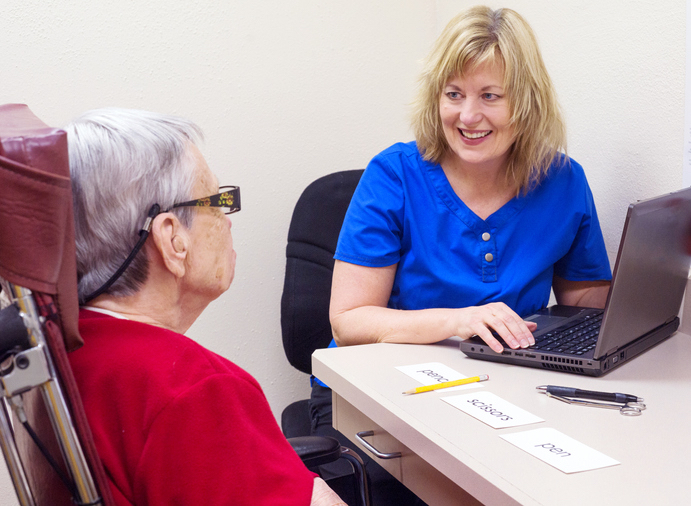Speech pathologists working with stroke survivors face similar conundrums to doctors answering tough questions from cancer sufferers, new University of Queensland research shows.

PhD candidate Bonnie Cheng from UQ’s School of Health and Rehabilitation Sciences said the study is based on speech pathologists’ reflections on answering the question ‘Will I get better?’ asked by people living with aphasia.
“Conversations about prognosis are tricky,” Miss Cheng said.
“Saying the right thing, to the right person, at the right time is challenging for any clinician, especially when it’s hard to predict how much and when recovery might happen.”
Aphasia is a language impairment that affects approximately one in three stroke survivors.
It causes difficulties with speaking, understanding, reading and writing, and can have devastating impacts on everyday life.
The research team conducted a series of interviews with 25 speech pathologists across Australia working with people with post-stroke aphasia in a broad range of settings.
“We explored the emotionally-sensitive issues surrounding hope, expectations and uncertainty that often shape these difficult conversations,” Miss Cheng said.
“From our interviews, we found it is possible for these conversations to be realistic, at the same time as being optimistic.
“The key lies in personalising the information within the context of each individual’s life and their unique values and priorities.
“We also need to have an understanding of patients’ and families’ perspectives when delivering a prognosis in order to ensure their preferences are respected and their information needs are met.
“Getting better is more than fixing the language impairment, as it’s about finding a way forward and living successfully, even with the impairment.”
The research team hope the study findings help navigate conversations about prognosis after this life-changing illness.
“Despite the complexity of addressing prognosis for people living with impaired communication after a stroke, speech pathologists currently rely on skills honed through experience, rather than training,” Miss Cheng said.
“These types of challenges speech pathologists face are often under-recognised.
“More research is needed to understand the intricacies of these conversations, so that prognosis can be addressed in the most constructive and compassionate way possible.
“It’s important to be careful about what is said, and how it is said, because words are emotionally powerful and depending on how responses are perceived, can influence the course of someone’s recovery.”
The study is published in Disability and Rehabilitation. (DOI: 10.1080/09638288.2021.1922514)
Media: Bonnie Cheng, bonnie.cheng@uq.edu.au; Kirsten O’Leary, UQ Communications, k.oleary@uq.edu.au, +61 412 307594, @UQhealth



